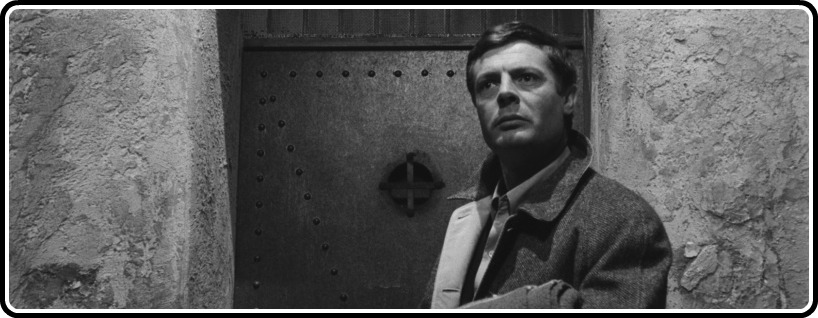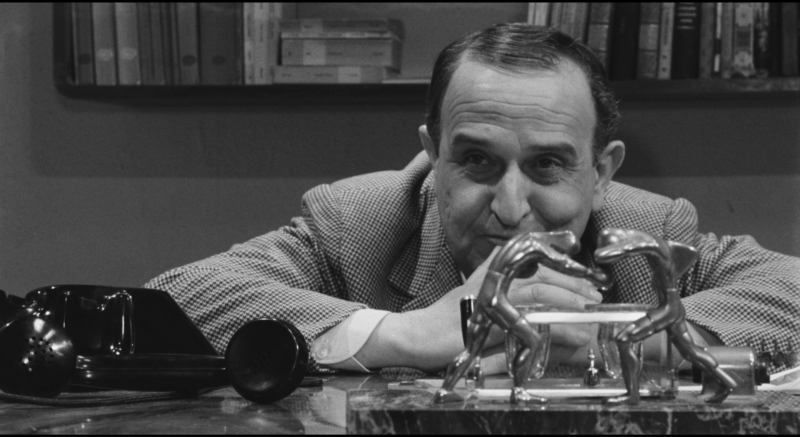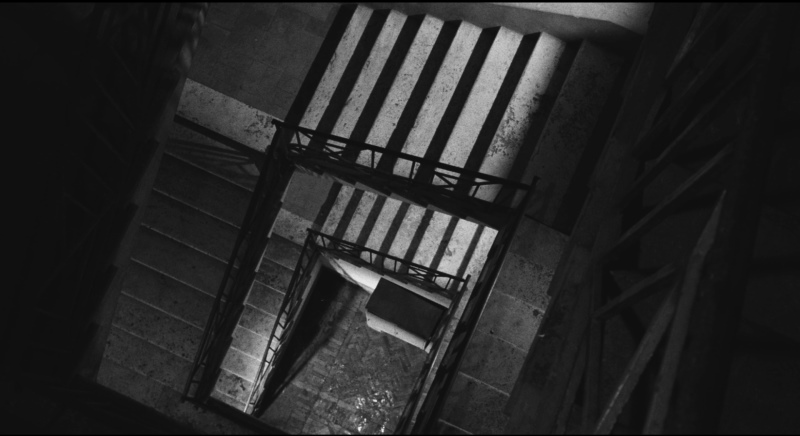
“Social issue” films, oddly, tend to have the effect of quelling, rather than igniting, our concerns regarding whatever struggle they are portraying. By beginning with a very pressing conflict, only to see a rag-tag bunch of outcasts overcome it, the subtle effect is that the problem is one easily conquered, and thus not worth the worry of the average moviegoer. “It seems like people are taking care of it,” we tell ourselves. Ello Petri doesn’t roll like that. The Italian filmmaker, despite flourishing during a decade in which European films were the height of fashion, is not quite as well known here in the States as many of his contemporaries, but thanks to Criterion’s release last year of Investigation of a Citizen Above Suspicion and now Arrow’s new edition of L’Assassino, the tide may finally be turning.
Like Investigation, L’Assassino concerns a murder, and the attempt to solve it. Whereas the latter film placed us right in the belly of the beast, with a corrupt police force ultimately looking for one of their own, Petri’s debut film finds him taking a wider examination of Italy’s moral corruption. The police, here, are just as bad, detaining Alfredo Martelli (Marcello Mastroianni) for hours without charging him, ultimately sending him on a nearly Kafkaesque mission to prove his innocence to a department that has assumed his guilt well before they even met him.

Unlike most of these portrayals, however, whether or not Alfredo is guilty of this crime is fairly immaterial towards his greater salvation. Petri shifts between the investigation and flashbacks to Alfredo’s everyday life, gradually painting a portrait of a man less sympathetic than might be initially suspected. He takes lovers behind his fiancee’s back. He buys antiques from dying villagers for a pittance and sells them at colossal mark-ups. When his aging mother comes to visit him, for what she claims will probably be the last time, he can’t wait to get rid of her, ignoring her requests to make him a home-cooked meal so he can take her out to a fancy restaurant, the likes of which someone of her generation would have no use. Even if Alfredo is not the murderer he claims to be, he is not a good man. Italy’s rush to modernism was a hot topic for the national cinema in the early 1960s. Whether from a political (Hands Above the City) psychological (L’Avventura, L’Eclisse) or social (La Dolce Vita) perspective, the cinema of the time was intensely concerned with what was being left behind, even as they themselves were clearly quite taken with everything that had been gained. That scene in the restaurant is key to this divide – both people detest everything the other desires. On what basis could such a family truly bond? Is Italy left only to wait until this faction that clings to its past dies? And is the new culture that they are chasing really so desirable, bereft as it is of honor, loyalty, and empathy? Petri sways back and forth between the past and the present until they become nearly indistinguishable; after all, in a moral sense, they are not. One’s sins are ever present. In one astounding shot, Petri even allows the two to intersect, more or less, panning across time as easily as he circles the room with his camera. It’s a bravura shot, perhaps even ostentatious, but nevertheless central to this intense moral concern that, even beyond the compelling trappings of a police investigation, are the true driving force of the film.

Sourced from a new 2k restoration by Cineteca di Bologna, L’Assassino looks quite good on Arrow’s new (Region B locked) Blu-ray release. It occasionally hovers on the edge of great, but there are quite a few shots – particularly early on – that are a little on the muddied side, not quite as sharp, rich, or deep as those later on in the film. But by and large, this is a stand-up job, with contrast and, generally, clarity being quite well-wrought, grain structure wavering in a sensible fashion, and major blemishes struck from the picture. Screencaps come courtesy of DVD Beaver. On the special features side, we get, first, a ten-minute introduction to the film (which, like most “introductions,” is better left until afterward) by film scholar Pasquale Iannone, who discusses Petri’s place in Italian cinema, and L’Assassino‘s resonance both for him and Mastroianni. Then, there’s a fifty-two-minute documentary on screenwriter Tonino Guerra, from 2008. Guerra was a poet who rather haphazardly wandered into the film industry, only to help craft some of the most important films ever made, including Amarcord, Nostalghia, and all of Michelangelo Antonioni’s from the 1960s. The documentary was quite illuminating, and I’m overjoyed that Arrow included it. The accompanying booklet features an essay by film scholar Camilla Zamboni, excerpts from contemporary reviews, and an essay by Petri, originally published in a Communist journal in 1957, addressing what he saw as the intense decline of Italian cinema since the release of Rome, Open City.
It’s a fierce, engaging piece of polemic. Petri and his debut film may not be terribly well-known today, but hopefully this new release from Arrow Video can go a long way towards correcting that. L’Assassino is a magnificently accomplished debut, a deeply moral film about a world losing its foothold. It incites in ways most films aim to sedate, urging forth a sort of moral outrage that only mass art can truly achieve. Let it reach the greater masses.


